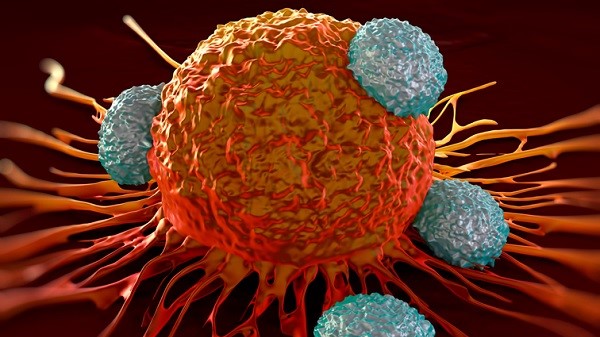New approaches could crack CAR-T solid tumour challenge

While CAR-T therapies could vastly improve outcomes in some types of blood cancer, finding ways to replicate this effectively and safely in solid tumours remains a challenge.
But a conference in Berlin heard that there could be ways to improve effectiveness of immunotherapies including CAR-Ts by improving classification of tumours in the first place, and pre-treating them to remove obstacles preventing an immune response.
Chimeric antigen receptor T-cell (CAR-T) therapies involve harvesting a patient’s own immune cells, genetically modifying them to attack cancer, then injecting them back into patients.
They have proved highly effective, but also with tough immune related side effects requiring close supervision and monitoring.
Gareth Thomas, professor of experimental pathology at the University of Southampton, told Kisaco Research’s Combined CAR-T Congress in Berlin, that the conventional grading and staging system for tumours has drawbacks when used to predict whether tumours will respond to cell-based therapies or immunotherapies.

Professor Gareth Thomas
He argued that focusing on DNA sequencing of tumours may not be the answer – instead he suggested focusing only on the messenger RNA (mRNA) that they produce to give a readout of which biomarkers and molecular targets are present.
Finding the right approach will be crucial for the UK's NHS and other healthcare systems, which won't want to have to implement a costly system.
He said: “It is still unclear what molecular test will be needed to select patients for trials for personalised medicines.”
Thomas said that looking for other biomarkers that indicate the presence of a cellular barrier against an immune attack could help to improve the success rate of not just CAR-Ts, but more conventional immunotherapies such as checkpoint inhibitors.
He cited research showing presence of cancer associated fibroblasts (CAFs) is associated with poorer outcomes. He says this could be one of the reasons why large checkpoint inhibitor trials have failed.
Pharma is struggling to find treatments for around 80% of cancers that are “immune cold” – and Thomas said in many cases CAFs are present in these tumours that seem to be able to evade attacks from immunotherapy.
Thomas said the university is working on research involving GKT831, drug developed by Belgian biotech company Genkyotex, which is in mid-stage studies for the fibrotic disease primary biliary cholangitis.
This can knock out the matrix formed outside of tumours by CAFs, and could render the cancer more susceptible to attack from the immune system, based on preliminary findings presented at the conference.
He added that it would be possible in some circumstances to revisit large-scale trials of checkpoint inhibitors that have failed, to see if presence of CAFs, or any other cellular barrier was a factor.
“Whether this is responsible, or another mechanism – we are looking at it,” he said.
Meanwhile, Lynsey Whilding presented findings from research, conducted by King’s College London, of a CAR-T therapy that it is being trialled in head and neck cancer.
While CAR-Ts are just beginning to become approved and established in blood cancers, there are issues in solid tumours because it is difficult to find a target antigen that is only present in the cancer.
The approach used by Whilding and colleagues gets around this simply by injecting the CAR-T directly into head and neck cancer tumours.
Preclinical trials suggest that there is no evidence that the CAR-T cells leak out of the tumour and damage other tissues and organs – although she noted that there was a need for longer-term evidence.
A phase 1 safety trial also showed a disease control rate of 69% and the research team is looking to find ways to develop the treatment further.
There is potential to develop the treatment for ovarian cancer, or mesothelioma, where the CAR-T could be directly injected into the tumour - although this rules it out as a therapy for cancers that are physically hard to reach.
She said: “We would like to do a phase 2 trial in combination with pembrolizumab (Merck’s Keytruda)."












